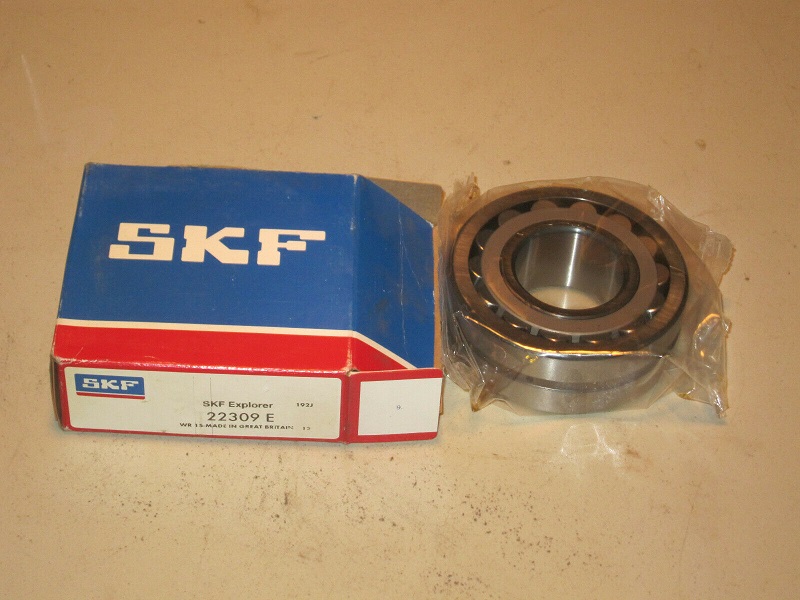
 News
NewsSKF rolling bearings are one of the indispensable basic components of running machinery. Although the rolling bearing is small in size and low in cost, once the rolling bearing fails, the loss to the running machinery and the entire production equipment is huge. With the rapid development of technology, enterprises have higher and higher requirements for the quality of rolling bearings. Especially automated and continuous production enterprises have very strict requirements on the reliability of rolling bearings. Therefore, how to improve the reliability of rolling bearings has become one of the main problems urgently needed to be solved by rolling bearing manufacturers and users.
The reliability of SKF rolling bearings is closely related to the failure modes of rolling bearings. To improve the reliability of bearings, it is necessary to start with the failure modes of the bearings and carefully analyze the failure causes of the rolling bearings to find specific measures to solve the failure.
1. Contact fatigue failure
The common form of contact fatigue failure is contact fatigue spalling. Contact fatigue spalling occurs on the working surface of the bearing and is often accompanied by fatigue cracks. It first occurs from the maximum alternating shear stress below the contact surface, and then expands to the surface to form different spalling shapes, such as pitting or pitting spalling. Small flakes are called shallow exfoliation. Due to the gradual expansion of the exfoliation surface, it will slowly expand to the deep layer, forming deep exfoliation. Deep spalling is a source of fatigue for contact fatigue failure.
2. Wear failure
Wear failure refers to the failure caused by the continuous wear of the metal on the working surface caused by the relative sliding friction between the surfaces.
Continuous wear and tear will cause gradual damage to bearing parts, and eventually lead to loss of bearing dimensional accuracy and other problems. Wear failure is one of the common failure modes of various types of bearings. According to the form of wear, it can be divided into abrasive wear and adhesive wear.
Abrasive wear refers to the wear caused by foreign hard particles or hard foreign matter or metal surface wear debris between the working surfaces of the bearing and the relative movement of the contact surfaces. It often causes furrow-like scratches on the working surface of the bearing.
Adhesive wear refers to the uneven force on the friction surface due to microscopic protrusions or foreign objects on the friction surface. When the lubrication conditions are severely deteriorated, local friction generates heat, which easily causes local deformation of the friction surface and friction micro-welding. At this time, the surface metal may be partially melted, and the force on the contact surface tears the local friction welded point from the substrate and increases the plastic deformation.
Eric Bearing Limited provides SKF Bearing 22309 E, click here to buy it.

3. Fracture failure
The main causes of SKF bearing failure are defects and overload. When the external load exceeds the strength limit of the material and the part breaks, it is called overload fracture. The main cause of overload is sudden failure of the host or improper installation. Defects such as microcracks, shrinkage cavities, bubbles, large foreign objects, overheated tissues, and local burns of bearing parts can also cause fracture at the defect when impact overload or severe vibration, which is called defect fracture.
4. Corrosion failure
Some rolling bearings are inevitably exposed to water, water vapor and corrosive media in actual operation, these substances will cause rust and corrosion of rolling bearings. In addition, the rolling bearing will be subjected to micro current and static electricity during operation, causing the current corrosion of the rolling bearing. Rust and corrosion of rolling bearings will cause pit-like rust, pear-like rust on the surface of the rings and rolling elements, as well as pit-like rust with the same interval between the rolling elements, and overall rust and corrosion. Eventually cause the failure of the rolling bearing.
5. Failure of clearance changes
During the operation of the SKF rolling bearing, due to the influence of external or internal factors, the original fit clearance is changed, the accuracy is reduced, and even "seizure" is caused, which is called the clearance change failure. External factors such as excessive interference, improper installation, expansion caused by temperature rise, instantaneous overload, etc.; internal factors such as residual austenite and residual stress in an unstable state, which are the main reasons for the failure of clearance changes .
Therefore, the correct and reasonable use of bearings is a systematic project. In the process of SKF bearing structure design, manufacturing and installation, taking corresponding measures for the links that produce early failures can effectively improve the service life of the bearings and the host.